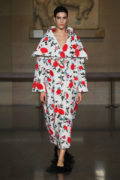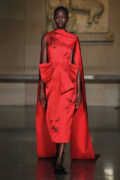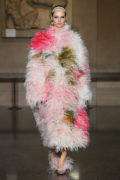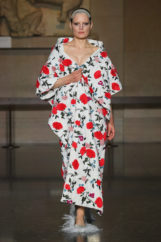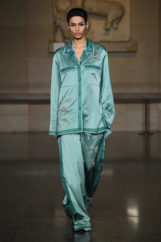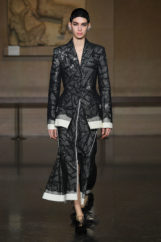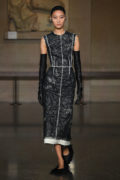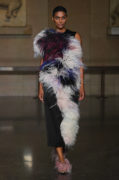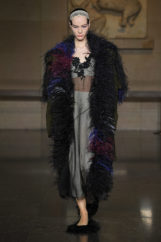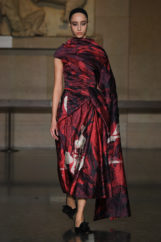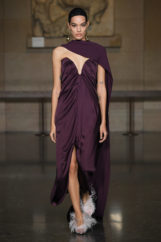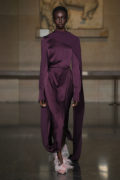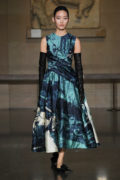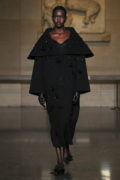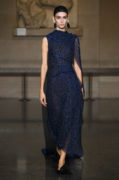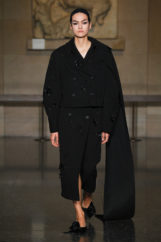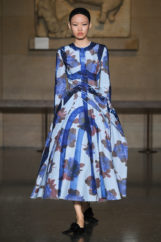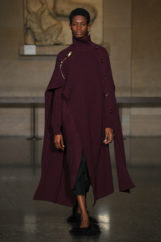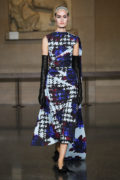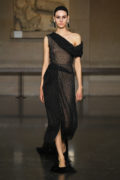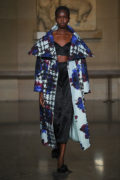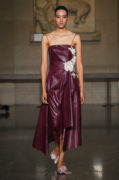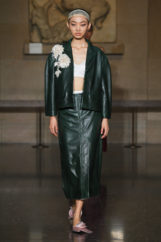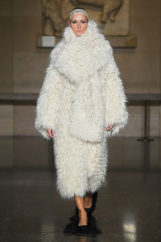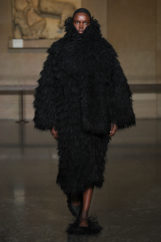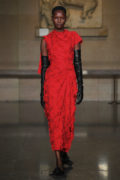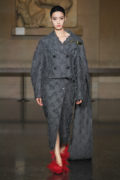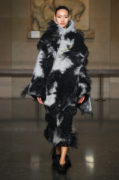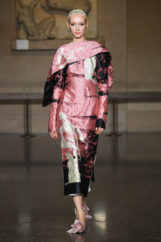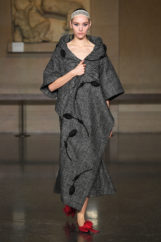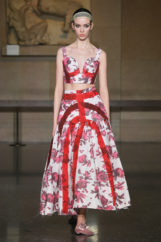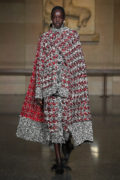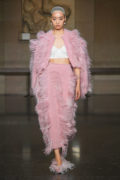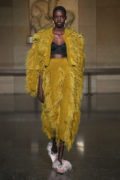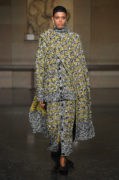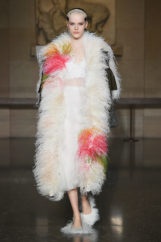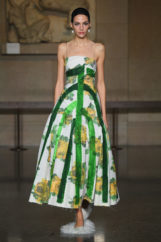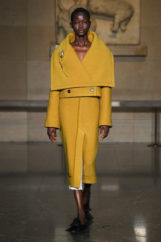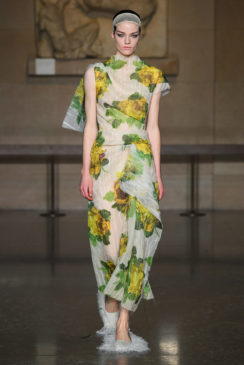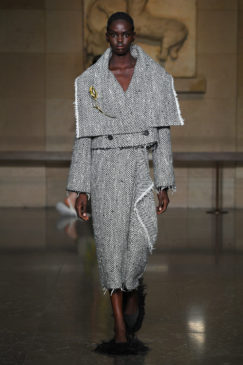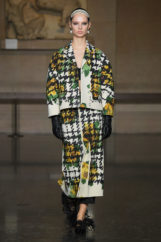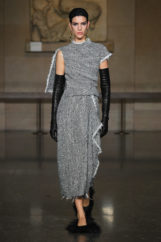Dear Shaded Viewers,
In the whirlwind of fashion’s ever-spinning carousel, Erdem Moralioglu’s Fall/Winter 2024 collection emerged as a poignant ode to Maria Callas, resonating with the vibrancy of an opera that refuses to end. Last year marked the centenary of Callas’s birth, and Moralioglu, with the finesse of a conductor wielding his baton, orchestrated a collection that delved into the depths of the American-born Greek diva’s soul. His pre-fall collection teased the curtain open, giving us glimpses into the private and public facades of Callas, but it was this fall’s ensemble that led us into the heart of the theatre, under the spotlight, and deep into the psyche of the persona and the person.
Moralioglu, in a masterstroke of design and narrative, juxtaposed the grandeur of Callas’s public persona with the intimacy of her private moments. Models adorned in grand coats with dramatic shawl collars, their feet slipped into the comfort of fluffy, slipper-like flats, paraded down the runway, wig tape visible—a raw, unfiltered glimpse of the opera star in her moments of vulnerability. This theatrical unveiling took place against the backdrop of the British Museum’s Room 18, home to the Elgin Marbles, a deliberate nod to Callas’s heritage and the cultural tug-of-war that mirrors her own complex identity.
Erdem’s collection danced between the lines of public adoration and personal solitude, reflecting on the year 1953, when Callas, at the zenith of her career, played Medea—a role that, perhaps, mirrored the tumultuous and tragic elements of her own life. The clothing itself, a symphony of detail and symbolism, from the rosettes on kitten-heel slingbacks to the dramatic coats adorned with golden brooches, played homage to the everyday Callas, the icon showered in roses, and the woman behind the legend.
The show’s location beneath the Parthenon statues, amid a dispute that echoes themes of displacement and cultural identity, was Moralioglu’s canvas for exploring Callas’s “Greek-ness.” The choice was both a tribute and a statement, a reflection on origins, belonging, and the journey from there to here—themes as relevant to Moralioglu’s own narrative as they are to Callas’s.
Later,
Leticia Dare

